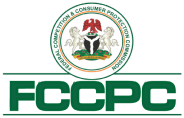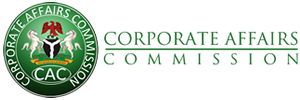The amount payable for obtaining market authorization for a locally manufactured herbal medicine is available in the NAFDAC Approved tariffs. All fees attract 5% value added tax (VAT). This fee includes payment for a Production Inspection.
You are expected to correct all the non-conformance observations made during the inspection and then apply for a Follow-up Inspection on payment of the appropriate fees which are available in the NAFDAC Approved tariffs. All fees attract 5% value added tax (VAT).
Apply to the Registration & Regulatory Affairs Directorate for renewal of the market authorization. Processing of this application would include payment of the appropriate fees which are available in the NAFDAC Approved tariffs and a GMP Reassessment Inspection. All fees attract 5% value added tax (VAT).
The minimum requirements are as outlined in the guidance on Requirements for GMP Inspection of Herbal Medicines & Nutraceutical Manufacturing Facilities available here.
Persons in charge of production should have a minimum of National Diploma (ND) in a relevant science discipline or provide evidence of licensure by the state or national Traditional Medicines Board.
The disclaimer is required by law as provided in the Herbal Medicines and Related Products Labelling Regulations when a manufacturer makes a claim which indicates that the product will affect the function of the body based on historical use. The manufacturer is responsible for ensuring the accuracy and truthfulness of these claims as they are not evaluated by NAFDAC.
- Pre-Production Inspection
- Pre-Registration Inspection
- GMP Re-assessment Inspection
- Special (Advisory) Inspection
- Follow-Up Inspection
- Routine Inspection
The applicable fees for the different types of inspections are available in the NAFDAC Approved tariffs. All fees attract 5% value added tax (VAT).
- Pre-Production Inspection (local Manufacturers) – 1-2 days per site
- Pre-Registration Inspection (local & foreign manufacturers) – 1- 3 days per site
- Special (Advisory) Inspection (local manufacturers) – 1- 2 days per site
- Follow-Up Inspection (local manufacturers) – 1-2 days per site
- Routine Inspection (local manufacturers) – 1- 3 days per site
The minimum requirements are as outlined in the Requirements for Pre-Production Inspection of Pharmaceutical Manufacturing Facilities available here and Requirements for Pre-Registration Inspection of Pharmaceutical Manufacturing Facilities available here.
The requirements for the structural layout of pharmaceutical manufacturing plants are as specified in the Current Good Manufacturing Practice for Medicinal Products Regulations 2009 sections 9 – 10 and as described in the NAFDAC Good Manufacturing Practice Guidelines for Pharmaceutical Products 2016 (Chapter 3). An intending manufacturer may request for a Special (Advisory) inspection through a written application to the Director, Drug Evaluation and Research on payment of appropriate fees for DER Inspectors to visit the proposed site and advise on how to ensure compliance of the site with applicable regulations.
It is a document issued by NAFDAC which attests to the conformity of the manufacturing line(s) used for pharmaceutical or cosmetic products with the relevant GMP standard. It is issued only when the manufacturer is operating at an acceptable level of compliance with NAFDAC GMP requirements on payment of required fees.
The GMP certificate is valid for 2 years.
The requirements for submission of laboratory samples are:
- Certificate of Analysis for the product batch
- Product Dossier in CTD format (e-copy)
- Satisfactory GMP status of the manufacturing facility
Clinical research is research conducted with human subjects, or material of human origin, in which the researcher directly interacts with human subjects. Clinical research helps doctors and researchers to find new and better ways to understand, detect, control, and treat illness. A clinical research study is a way to find answers to difficult scientific or health questions.
If a clinical research study involves testing or studying a drug or medical device to see if it is a safe and effective treatment for people, it is called a “trial.” For example, a clinical trial may test the effectiveness of a new drug for treating Parkinson’s disease.
Many new medicines and drugs are found to work in the researcher’s lab, and to be safe and effective in animal tests. But drugs and devices must be proven to be safe and effective for people before NAFDAC can approve them and doctors can prescribe them to patients. NAFDAC has strict rules that govern how clinical trials are conducted. These rules are designed to ensure the safety of those who participate.
All clinical studies are based on a set of rules or directions called a protocol. A protocol describes what types of people are eligible to participate in the study; determines the schedule of tests, procedures, medications, and dosages; and sets the length of the study.
Clinical trials of experimental drugs proceed through four phases:
In Phase I clinical trials, researchers test a new drug or treatment for the first time in a small group of normal, healthy volunteers (about 20 to 80) to evaluate its safety, determine a safe dosage range, and identify side effects.
In Phase II clinical trials, the study drug or treatment is given to a larger group of people (about 100 to 300), including patients with the particular disease, to see if the drug or treatment is effective, and to further evaluate its safety.
In Phase III clinical trials, the study drug or treatment is given to large groups of people (from 1,000 to 3,000), including patients, to confirm its effectiveness, monitor side effects, compare it to other commonly used treatments, and collect information that will allow the drug or treatment to be used safely.
Phase IV clinical trials are done after the drug or treatment has been approved by the NAFDAC and marketed for public use. These studies continue testing the drug or treatment to collect information about its effect in various populations and gather data on any side effects associated with long-term use.
Clinical trial application can be made by completing the NAFDAC Clinical Trial Application Form (found on NAFDAC website), writing an application letter to the DG-NAFDAC and attaching other relevant documents (see documentation guidelines on NAFDAC website).
The documentation requirements for a CTA are available here.
Please refer to the NAFDAC Approved Tariffs available here
These are clinical trials sponsored for commercial purposes or any study that the sponsorship is not from the investigator.
Any clinical trial that is sponsored by the trial investigator.
It takes a maximum of sixty (60) working days to review a clinical trial application.
Clinical Trial approval last one year from the date of approval, however, it can be renewed.
Yes, positive Ethical Clearance must be obtained before NAFDAC can grant an approval for CTA. However, the applicant can submit CTA at the same tine to both NAFDAC and Ethics Committee.
In many clinical trials, one group of patients will be given an experimental drug or treatment, while a control group is given either a standard treatment for the illness, or a placebo (a harmless “fake” drug), or no treatment at all.
In a “blinded” or “masked” study, participants do not know whether they are getting the drug being tested, or whether they are in the control group. The goal is to prevent the so-called “placebo effect” from influencing the results of the experiment. The placebo effect is the phenomenon of patients feeling better simply because they think they are receiving a helpful drug or treatment.
Sometimes, clinical trials are “double-blind” or “double-masked.” That means that neither the participants, nor the study staff members, know who is receiving the experimental drug and who is in the control group. Studies are performed in this way so that neither the patients’ nor the doctors’ expectations about the experimental drug can influence the observations and results.
Clinical research is a vital part of finding new treatments and cures for diseases. Carefully conducted clinical studies are the fastest way to find treatments that are safe and effective. By volunteering for a clinical study, you would be participating in research that may result in a new treatment for a deadly or debilitating disease.
Before you agree to participate in a study, you must be given complete information about the study, known as “informed consent.” Informed consent involves two essential components: a document and a process. The informed consent document gives a summary of the research project (including the study’s purpose, research procedures, potential benefits and risks, etc.) and explains the individual’s rights as a research participant. This document is part of an informed consent process, which consists of conversations between the research team and the participant, and may include other supporting material such as study brochures. The informed consent process provides research participants with ongoing explanations that will help them make informed decisions about whether to begin or continue participating in the research project
A clinical trial registry is an official platform and catalog for registering a clinical trial.
NAFDAC requires that all clinical trials conducted in Nigeria must be registered on the Pan African Clinical Trial Registry (PACTR) at www.pactr.org – which is a World Health Organization (WHO) primary registry.
The amount payable for a Production Inspection for a cosmetic product is available in the NAFDAC Approved tariffs. All fees attract 5% value added tax (VAT).Q2.
Only water sourced from a borehole of at least 150ft depth or public mains can be used in production of cosmetics.
A water treatment plant is necessary to provide water of the desired quality as the risk of product contamination and product instability is increased when untreated water is used for production.
A deionizer is needed because potable water still contains ions which affect the stability of finished cosmetics products.
An application for a pack size extension should be made and approval obtained from NAFDAC before the new pack size is manufactured.
This is permitted for certain categories of products under the Kitchen/Micro Scale Cosmetic Products Manufacturing Scheme. Refer to the guidance document on requirements for the scheme available here.
A cold store with adequate facilities for storage of the products at the recommended temperature under the supervision of a competent cold chain officer.
The minimum requirements are as outlined in the guidance on Requirements for Pre-Registration Inspection of Cold Chain Facilities for Storage of Vaccines/Biologics available here.
The following documents should be available at a cold chain storage facility:
- Standard Operating Procedures for the following activities:
- Cleaning of the cold store
- Handling of vaccines
- Product recall
- Product distribution
- Personnel gowning and;
- Preventive maintenance of equipment
- Daily temperature monitoring charts.
- Current certificate of fumigation of the premises.
- Evidence of qualification of the cold store






